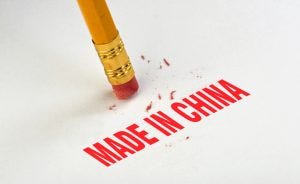
China has approved tislelizumab, a drug for Hodgkin’s lymphoma developed by BeiGene and made locally by Boehringer Ingelheim.
The monoclonal antibody (Mab) is the first biopharmaceutical approved under China’s recently modified Drug Administration Law (DAL).
The law was revised in August introducing a marketing authorization holder (MAH) system similar to those in the US and EU. The revision also formalized rules governing contract manufacturing.

Image: iStock/mj0007
Previously, regulatory approvals were contingent on the developer having its own manufacturing capacity in China.
However, in 2015 the Government introduced a pilot scheme allowing the approval of products whose manufacture was outsourced.
Tislelizumab was the drug selected for the pilot and Boehringer Ingelheim was the contract development and manufacturing organization (CDMO).
Boehringer Ingelheim said that “Tislelizumab is the first biopharmaceutical manufactured by a multinational contract manufacture service provider in China.
“It is also the first innovative biopharmaceutical commissioned under the new MAH model in China.”
Manufacturing history
BeiGene and Boehringer Ingelheim started their collaboration in 2013.
Boehringer Ingelheim’s contracting business – known as BioXcellence – has a manufacturing facility in Shanghai. The site focuses on the production of monoclonal antibodies and fusion proteins using single-use technologies.
In a press statement Uwe Buecheler, head of the Biopharmaceuticals Business Unit at Boehringer Ingelheim, said, “This is the first commercial biopharmaceutical manufactured in our facilities in China.
In addition, the firm provided the chemistry, manufacturing, and control (CMC) services for tislelizumab.
Prior to that it assisted BeiGene with tislelizumab’s development through process and analytical method development, supply of GMP clinical material, and filing support with the NMPA (National Medical Products Administration of China).
Amgen and Celgene
Tislelizumab is an anti- PD-1 antibody.
It is being studied in various malignancies, including non-small cell lung cancer, hepatocellular carcinoma, esophageal squamous cell carcinoma, mature T-and NK-cell lymphomas and urothelial cancer.
Previously, BeiGene developed tislelizumab with Celgene. However, the Chinese firm regained full rights to the drug shortly after Bristol Myers Squibb launched a $74 billion takeover bid for Celgene.
Chinese approval for tislelizumab comes a few months after US biotech Amgen acquired a 20.5% holding in BeiGene.
About the Author
You May Also Like

schedl_b_and_w.jpg?width=100&auto=webp&quality=80&disable=upscale)
schedl_b_and_w.jpg?width=400&auto=webp&quality=80&disable=upscale)



